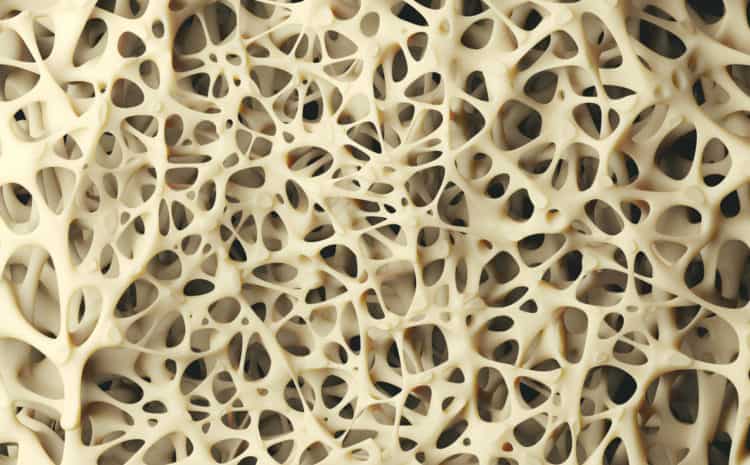
Strong Bones, Strong Teeth: Dental Implants in Osteoporosis Management
Do you have missing teeth? Are you seeking a better option to replace your missing teeth than dentures? Dental implants are an excellent choice. However, many of our patients are concerned that their osteoporosis-related poor bone density would preclude them from being viable candidates for dental implants.
What is the relation between dental implants and osteoporosis?
In osteoporosis, your bones become porous and weak. It is more frequent in women, though it can also occur in men. When your bones are frail and porous, it affects not only your major bones like the femur. However, it also affects the rest of your body, including your jawbone density. This is what holds your teeth in place, and if you choose dental implants, they will retain those in place as well.
Many individuals are worried that if they have osteoporosis, dental implants will be out of the question because their bone density is so low. While this may be true for some patients, it is not the case for everyone. To determine whether dental implants are a feasible alternative for you, our dentist will need to do a CT scan to assess your bone density.
Can Dental Implants Have Successful Outcomes in the Presence of Osteoporosis?
If you have osteoporosis, there are a few options for making your dental implants successful. First, if you have only minor bone loss in your jaw, we may be able to provide you either modest dental implants or a bone transplant to rebuild the jawbone sufficiently to support implants.
If you are currently taking osteoporosis medicine, such as bisphosphonates, this medicine can reduce the course of bone loss. While this is often beneficial, it can have the unintended consequence of causing your jaw to heal slowly after surgery. Some intensive bisphosphonate therapies have also been associated with implant failure due to adverse effects.
According to the rest of the studies, osteoporosis should not preclude you from receiving implants. Some have determined that dental implants have a greater success rate if they are implanted immediately after your teeth are extracted. If you have osteoporosis and desire dental implants, you should act as soon as possible.
How Can Medication for Osteoporosis Impact Dental Implants?
Many osteoporosis patients are given Bisphosphonates to help them fight the illness. These are administered orally or intravenously to inhibit bone resorption, allowing fresh bone to develop while boosting bone density.
Patients who take Bisphosphonates can enjoy healthy lives, but one caveat may influence dental implant patients.
When a person uses Biphosphonates for a long time, they may develop osteonecrosis, which means “bone death” in the jawbone. Sufferers of this ailment may experience isolated sections of their jaw, losing vitality and dying.
Dr. Adatrow suggests that patients stop using Bisphosphonates for at least three months before surgery to reduce the risks of oral surgery and enhance the possibility that the implants will remain in place after the procedure. Surgery should begin immediately after a dental extraction or at the site of the lost tooth after an accident.
A Journal of Oral Implantology study included 24 postmenopausal women who had lost parts of their teeth, 12 of whom had osteoporosis. Following the administration of bisphosphonates to the 12 osteoporosis patients and extracting the remaining teeth, the ladies were provided with dental implants.
The dental implants remained in place in all the patients, even those with osteoporosis, after a year. The study found that bisphosphonates can aid in implant insertion if the implants are inserted promptly after extraction.
Dr. Adatrow insists that consuming bisphosphonates in the short term should not affect the dental implant process. He further insists that a thorough evaluation be performed before deciding the eligibility for implants.
Do Not Allow Bone Density to Affect Your Dental Implants
If you believe that your poor bone density will prohibit you from getting effective dental implants, don’t rule it out until you’ve had a comprehensive exam from our Columbus dental implants dentist. We may have the ideal option to make dental implants a reality for you.
Looking for the Dental Implants and Osteoporosis Condition in Memphis, TN?
Dr. Adatrow can help!
If you have any further questions about oral health, you can schedule a consultation with Dr. Adatrow. Dr. Adatrow has more than 18 years of experience in placing dental implants, with a success rate of over 97%, and can provide you with the best possible dental treatment. He is a Board-Certified Prosthodontist and Periodontist. Please contact our office to schedule your consultation now!
About Advanced Dental Implant and TMJ Center
Advanced Dental Implant and TMJ Center provides personalized and specialized dental treatment for patients in Desoto County, MS and Memphis, TN areas. Dr. Pradeep Adatrow is Specialist in Dental Implants and Gum Diseases and provides patients with customized treatment plans to meet the oral health needs of his patients. Dr. Adatrow is the only practicing board-certified Periodontist and Prosthodontist in the South East United States. He earned his Doctor of Dental Surgery and Post Graduate Prosthodontic Training from the University of Tennessee College of Dentistry and his Post Graduate Training in Periodontics from Indiana University. Dr. Adatrow is board certified by the American Board of Periodontology and is a Fellow of the prestigious International College of Dentistry. Along with a devoted team of dental hygienists, assistants, and administrative staff, we strive for excellence in customer satisfaction. Please visit our website at www.advanceddentaltmj.com or call us at (662) 655-4868 to schedule a consultation.



